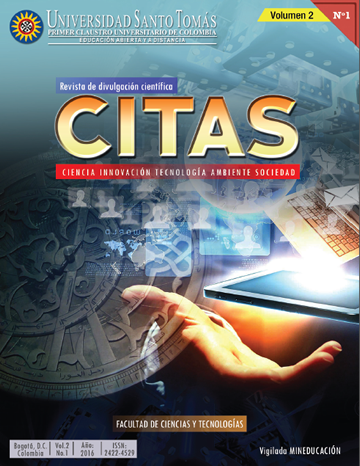Sostenibilidad empresarial y la responsabilidad con el medio ambiente: un reto constante
Corporate sustainability and responsibility to the environment: a constant challenge
Abstract (en)
This article describes the meaning of sustainability and the boom that has taken, from the environmental degradation that has been taking the planet and how companies are pursuing their projects and products environmentally friendly and sustainable manner. In addition is the theme of the green as economy so companies interact in fraternity with the environment.Abstract (es)
References
Burford, L. D. (2013). Project Management for Flat Organizations: Cost Effective Steps to Achieving Succesfull Results. Project Management Journal, 44(6), e4.
Chan, D., Lam, P., Chan, J., Ma, T., & Perkin, T. (2012). A Comparative Study of the Benefits of Applying Target Cost Contracts Between South Australia and Hong Kong. Project Management Journal, 43(2), 4-20.
Commission of European Communities 1993, Biological Particles in Indoor Environments, European Collaborative Action - Indoor Air Quality and its Impact on Man, Report: 64
Emhjellen, K., Emhjellen, M., & Osmundsen, P. (2003). Cost Estimation Overruns in the North Sea. Project Management Journal, 34(1), 23-29.
Garzón Castrillon, M. A. (2014). Revisión sobre la sostenibildad empresarial. Revista de Estudios Avanzado de Liderazgo, 1(3), 52-77.
Lawrence Pratt, L. R. (2005). El DR-CAFTA y el medio ambiente: perspectivas para el desarrollo empresarial y la sostenibilidad en Centroámerica. Revista Empresa (12), 18-28.
Meier, S. R. (2010). Causal Inferences on the Cost Overruns and Schedule Delays of Large- Scale U.S. Federal Defense and Intelligence Acquisition Programs. Project Management Journal, 41(1), 28-39.
Méndez, J.A. y López, J.A. (1996). Una crítica al concepto de desarrollo sostenible. Iztapalapa. Revista de Ciencias Sociales y Humanidades 40, 123-140.
Oriol Pascual, et. al. (2011). Manual para el emprendimiento sostenible. Rotterdam: Centro Colaborador en Consumo y Producción Sostenible (CSCP).
Radi Sagbini, Z. &. (2007). Creación de valor de las empresas colombianas durante el período 2000 - 2005. Pensamiento y Gestión, 22, 28-84.
Samset, K., & Williams, T. (2010). Issues in Front- End Decision Making on Projects. Project Management Journal, 41(2), 38-49.
PHUMA, (2010). Nuestro Planeta. Revista del Programa de las Naciones Unidas, 7-8.
Secretaría Permanente del SELA. (2012). La Visión de la Economía Verde en América Latina y el Caribe, SP/Di No 1-12, 8-20
How to Cite
License
The authors sign a transfer of rights so that Universidad Santo Tomás can publish the articles under the conditions described below. The authors, readers and other users are free to share, copy, distribute, perform and publicly communicate the work under the following conditions:
-
Attribution — You must give appropriate credit, provide a link to the license, and indicate if changes were made. You may do so in any reasonable manner, but not in any way that suggests the licensor endorses you or your use.
-
NonCommercial — You may not use the material for commercial purposes.
-
ShareAlike — If you remix, transform, or build upon the material, you must distribute your contributions under the same license as the original.
No additional restrictions — You may not apply legal terms or technological measures that legally restrict others from doing anything the license permits.
CITAS is licensed under Creative Commons Attribution-NonCommercial-ShareAlike 4.0 International (CC BY-NC-SA 4.0).

Until 2019 the documents published in the magazine were under the Creative Commons Attribution-ShareAlike license (CC BY-SA), however, in order to guarantee the open and free distribution of the content published in the magazine, it was decided to change the type Commons Attribution-NonCommercial-ShareAlike 4.0 International license (CC BY-NC-SA 4.0)






